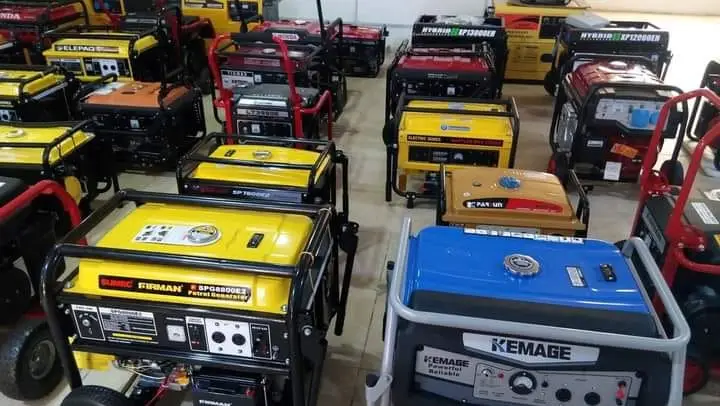A new report from the International Renewable Energy Agency (IRENA) has revealed that Nigeria is the top importer of premium motor gasoline (PMS) and diesel generators in Africa.
The report, titled Renewable Energy Roadmap: Nigeria, developed in collaboration with the Energy Commission of Nigeria (ECN), highlights the issue of reliance on standby generators in Nigeria and its impact on the country’s economy and business.
Many businesses and homes in Nigeria rely on backup generators due to power supply issues.

Nigeria’s energy supply relies heavily on natural gas plants and large hydroelectric power plants.
However, unavailability of gas, machine downtime, seasonal water shortages and limited grid capacity severely limited the operational performance of these power plants and affected the country’s energy supply.
As a result, Nigeria imports the largest number of generators in sub-Saharan Africa, with around 3 million generators deployed in the country out of 6.5 million generators in sub-Saharan Africa.
The high cost of the electricity grid is another major factor contributing to Nigeria’s reliance on backup generators. In fact, many turn to self-generation to reduce costs.
According to a report by Stears Business, Nigerian households and businesses spend an estimated $14 billion annually on fuel for backup generators.
Also, read; Congo Awards Lake Kivu Gas Blocks to U.S. and Canadian Producers
Furthermore, data from the International Trade Center show that Nigeria spent US$5.26 billion on importing generators and other electrical machinery and equipment between 2020 and 2021.
Not only does this increase the cost of doing business for these families and companies, it also makes Nigerian products less competitive in the global market, as the cost of domestic production makes them around a third more expensive than imported ones.

According to the International Renewable Energy Agency (IRENA), Nigeria’s power sector needs significant investment to achieve stable electricity supply. Increasing access to electricity requires a total investment of approximately $34.5 billion to bring electricity to every home by 2030.
The report also recommends focusing on strategies to replace backup generators with clean energy alternatives, which have become increasingly competitive in many countries in recent years due to lower costs.
